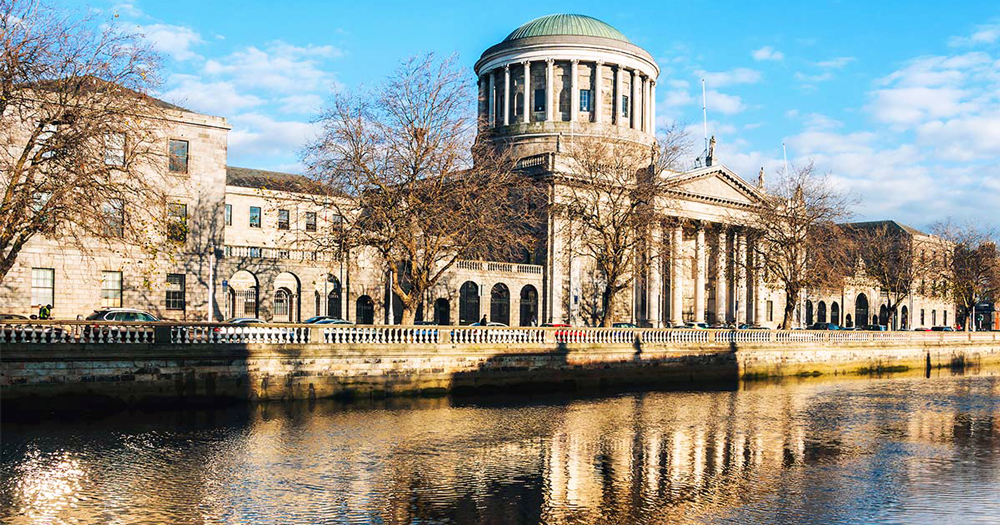A Nigerian man seeking asylum in Ireland in fear of persecution over his sexuality has had his appeal rejected, however, the High Court has taken issue with the Department of Justice describing his bisexuality as implausible.
In 2016, the man, referred to as Mr X, came to Ireland seeking asylum after allegedly fleeing from Nigeria in fear of his safety after his bisexuality was discovered. Two years later, the Department, concluding there were inconsistencies to his story of having same-sex relations, issued a notice to the man containing a deportation order, deciding that he would face no harm upon his return to Nigeria.
Mr X attempted to appeal this decision and halt deportation, stating that he had not been given the benefit of doubt. The High Court refused Mr X his appeal for asylum due to the overlong period of time it took him to complain about the Department of Justice’s conclusion. However, the Court took issue with the Department describing his bisexuality as implausible.
A High Court document stated:
“There are moments in the progress of Mr X’s application when an onlooker might wonder at how the State has proceeded. Three examples suffice:
1. Mr X has recounted a number of sexual encounters with other males, yet his truthfulness in this regard has been assailed on the basis that ‘it simply is not credible that a young man having been raised in…a restrictive environment would engage in behaviour both unacceptable and outlawed in the society in which he lives’.
Such a conclusion, with respect, does not follow. Growing up in a ‘straight’ or strait-laced environment does not mean that a male of any age who is bisexual/homosexual is going to avoid expressing his natural sexuality. As a nation we ought surely to be particularly alive to this truth, for there were doubtless many bisexual/homosexual men in Ireland who – in the particularly bleak period that lasted from the enactment of the Offences against the Person Act 1861 through to the belated decriminalisation, in the early-1990s, of consensual same-sex intercourse between males of/above the age of consent –rightly continued, regardless of the law, to express their natural sexual orientation by engaging in consensual same-sex adult relationships, even though such relationships were wrongly considered by many in that period to involve behaviour that was so unacceptable as to merit condemnation through criminalisation.
2. It was not believed that a bisexual/homosexual man would have naked ‘selfies’ of himself and his partner on his mobile phone because if he was caught with such photos that could lead to a lengthy prison sentence. Again, such a conclusion, with respect, does not follow. If even the prospect of getting into trouble yielded the result that one would not commit a crime, then no crimes would ever be committed.
3. There was early consideration of whether Mr X, in his first months in Ireland, had invoked the assistance of LGBTI+ rights organisations or visited any gay bars/clubs. But many LGBTI+ people doubtless go through life without ever becoming involved in rights organisations and the notion that a poor man seeking asylum would have money to throw about in bars/clubs speaks for itself.
While the High Court report continued, “The just-mentioned aspects of Mr X’s case are matters that are not the focus of the present application and thus matters in respect of which no order can be made in this application,” it went on to say, “However, whether, given the just mentioned aspects of Mr X’s case, the State is at risk of falling short, in this case, of attaining that general moral ideal which it recognises in, and seeks to attain through, its asylum regime, for if the Minister is wrong and Mr X is bisexual, he is set to be deported to a country where LGBTI+ people are treated badly and suffer greatly.”
The case follows an International Protection Officer’s rejection of a lesbian woman’s appeal for refugee status despite telling authorities she feared for her life in Zimbabwe. In a statement, activist Bulelani Mfaco wrote, “The Department of Justice assumes to have the authority to validate an asylum seeker’s sexual orientation. Nowhere in Irish law or practice would the State treat its LGBTQ+ citizens like LGBTQ+ asylum seekers.”
© 2021 GCN (Gay Community News). All rights reserved.
Support GCN
GCN is a free, vital resource for Ireland’s LGBTQ+ community since 1988.
GCN is a trading name of National LGBT Federation CLG, a registered charity - Charity Number: 20034580.
GCN relies on the generous support of the community and allies to sustain the crucial work that we do. Producing GCN is costly, and, in an industry which has been hugely impacted by rising costs, we need your support to help sustain and grow this vital resource.
Supporting GCN for as little as €1.99 per month will help us continue our work as Ireland’s free, independent LGBTQ+ media.
